Search Results
Results for: 'vermont'
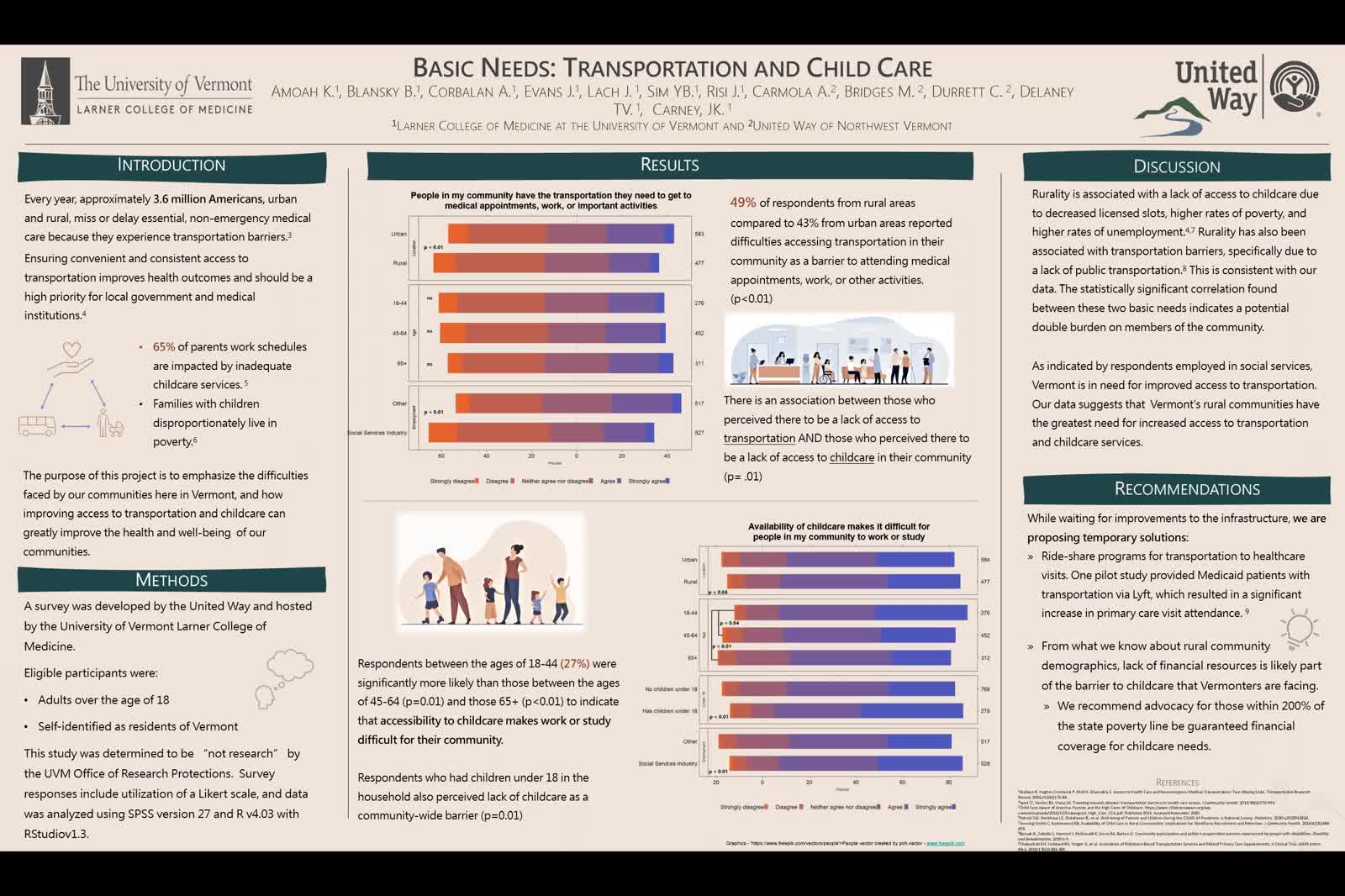
Basic Needs: Transportation and Childcare
An overview of our poster outlining the result found when studying the perception of access to transportation and childcare in Vermont communities.
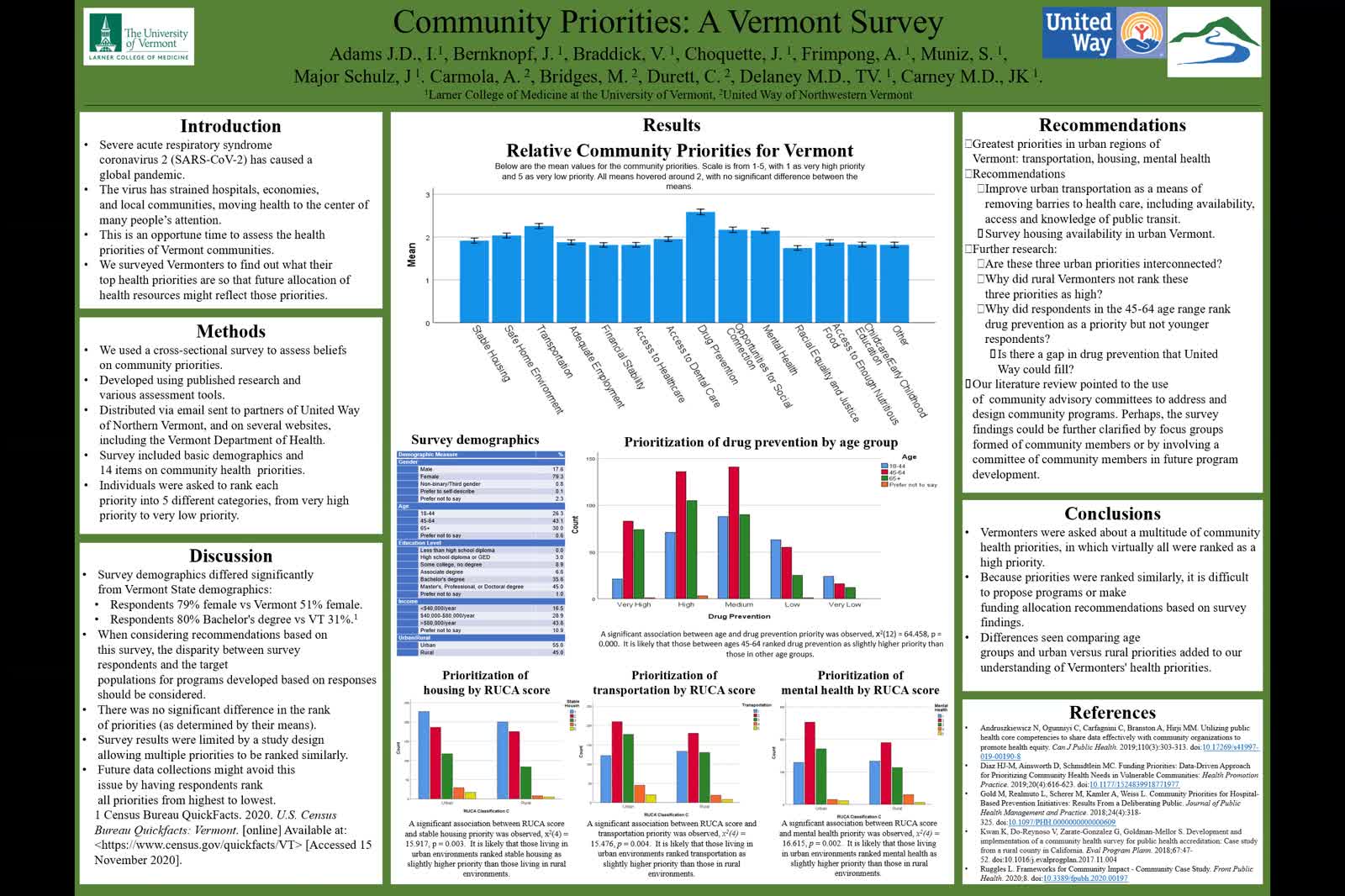
Community Priorities Public Health Project
This is a poster and recording of our public health project, in conjunction with the United Way of Northern Vermont, on community priorities in light of COVID 19.
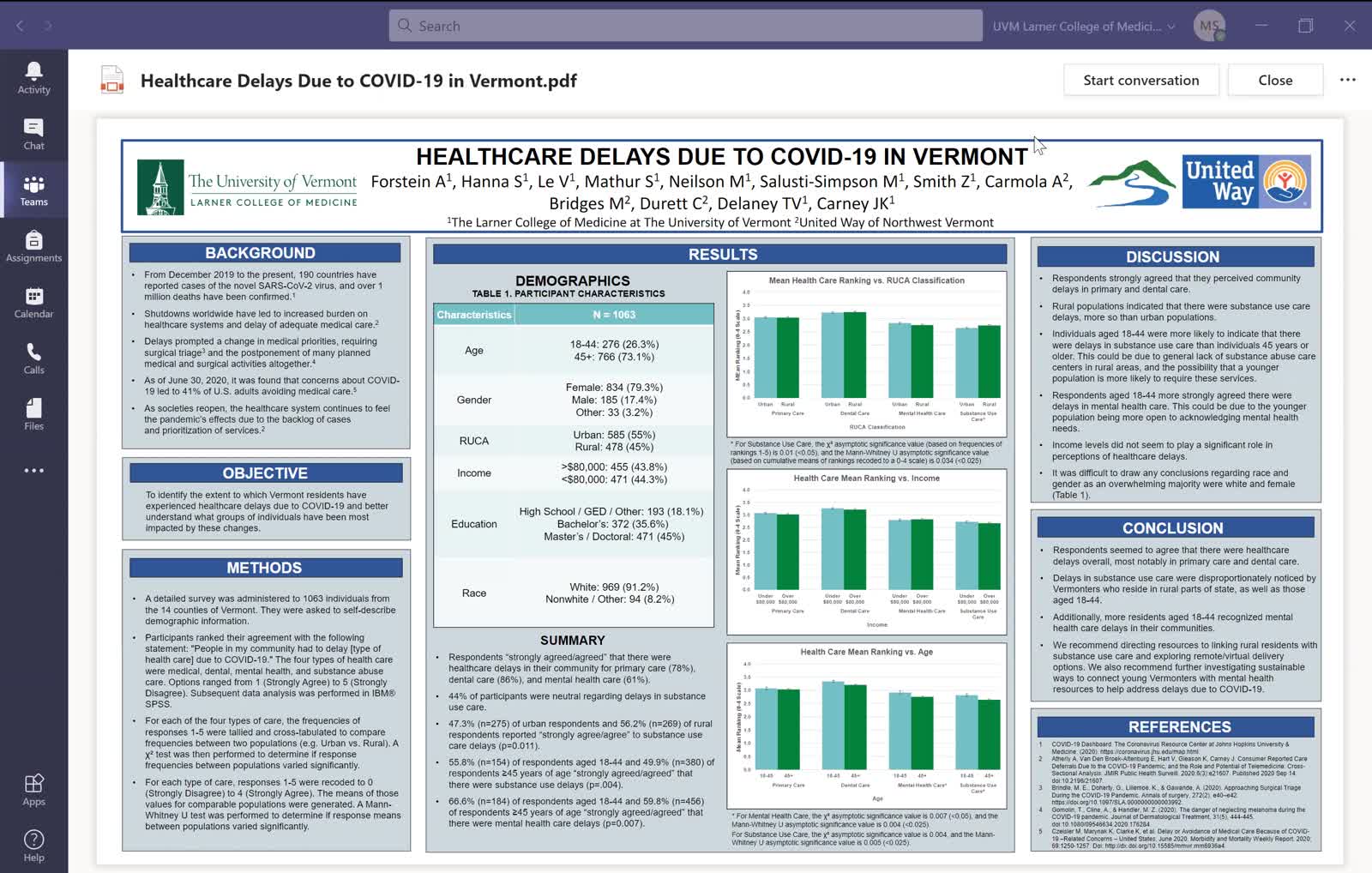
Healthcare Delays during COVID-19 Oral Presentation
This presentation outlines the preliminary data collected in the state of Vermont on community members perceptions on healthcare delays due to COVID-19.
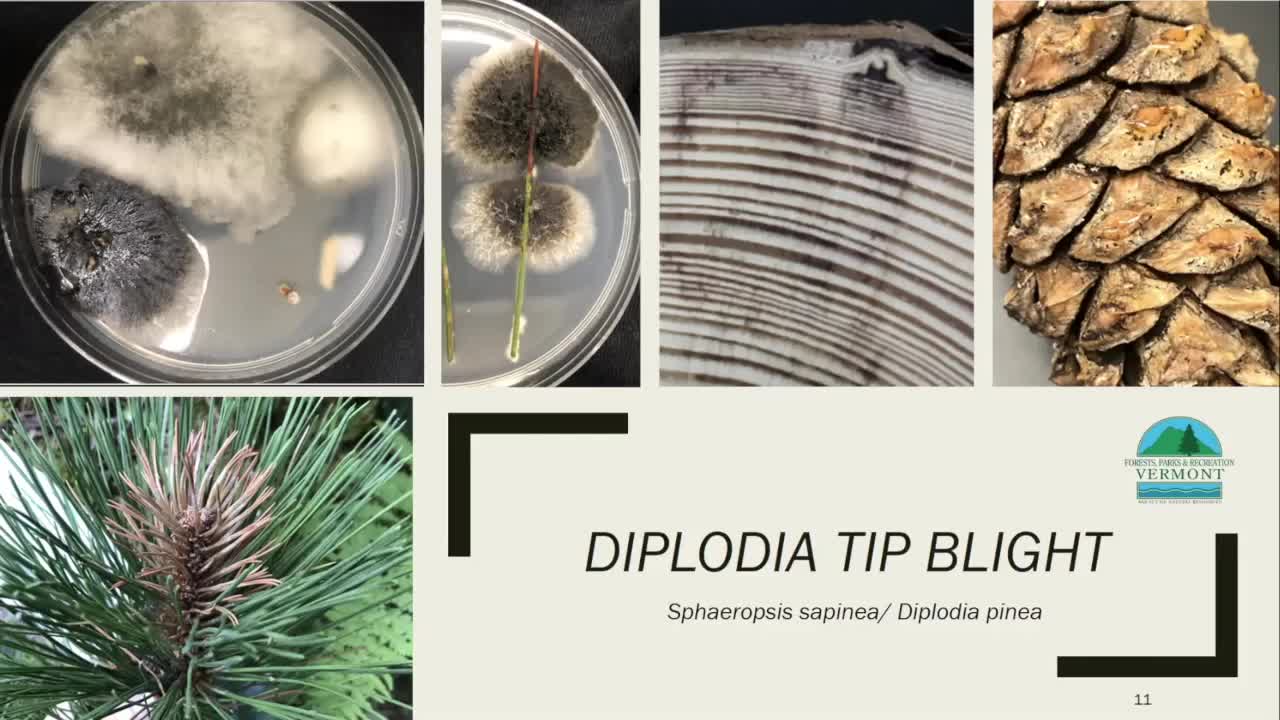
This was presented by Savannah L Ferreira. This presentation was part of a series of contributed talks from the 2020 FEMC Annual Conference hosted virtually for the first time. For more content from the 2020 conference please go to https://www.uvm...
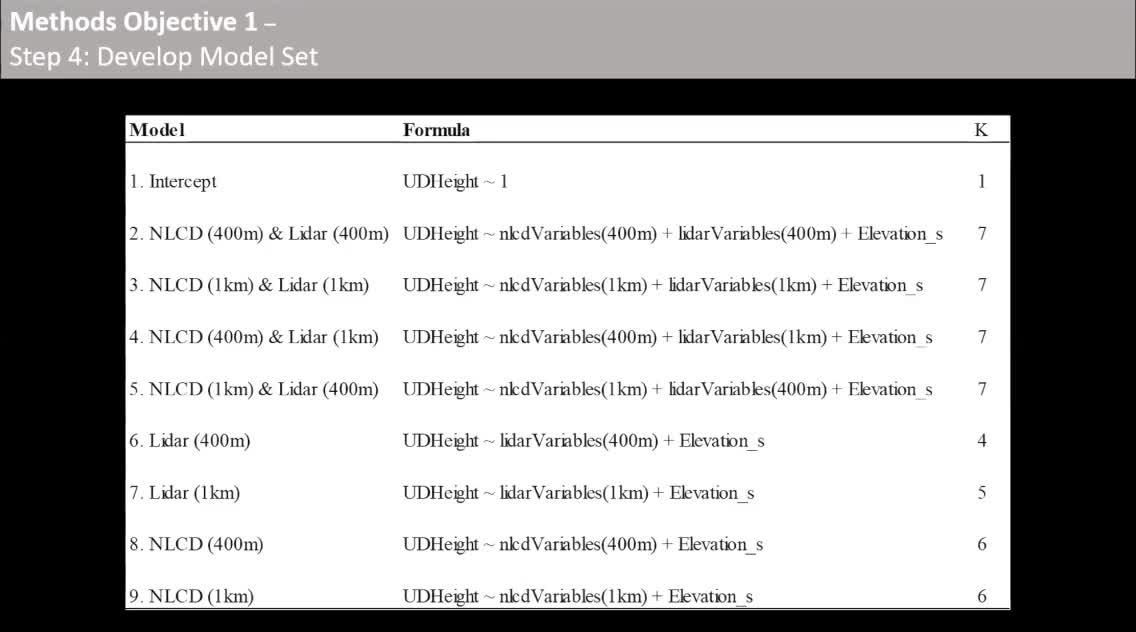
This was presented by Joshua Blouin. This presentation was part of a series of contributed talks from the 2020 FEMC Annual Conference hosted virtually for the first time. For more content from the 2020 conference please go to https://www.uvm.edu/f...

This was presented by Caitlin Drasher. This presentation was part of a series of contributed talks from the 2020 FEMC Annual Conference hosted virtually for the first time. For more content from the 2020 conference please go to https://www.uvm.edu...
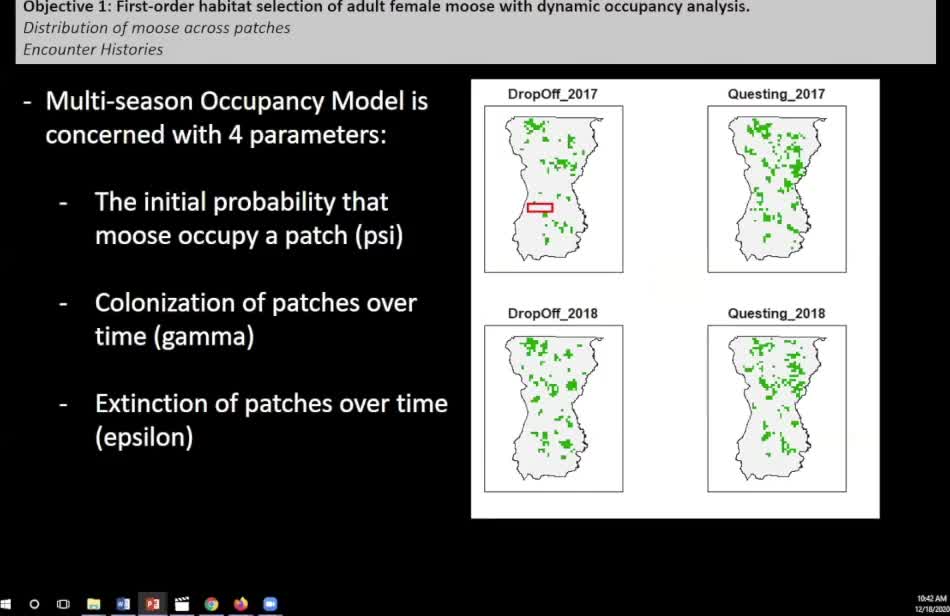
This was presented by Joshua Blouin. This presentation was part of a series of contributed talks from the 2020 FEMC Annual Conference hosted virtually for the first time. For more content from the 2020 conference please go to https://www.uvm.edu/f...
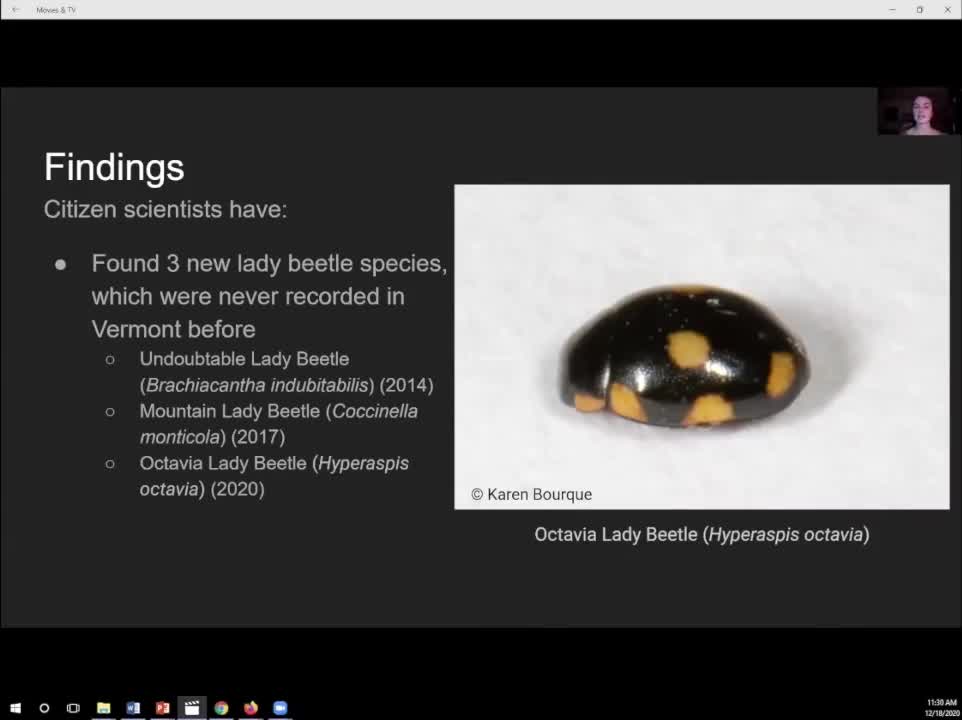
Lady Beetles of Vermont: Invasions, Extirpations, and Recent Discoveries from Community Scientists
This was presented by Julia Pupko. This presentation was part of a series of contributed talks from the 2020 FEMC Annual Conference hosted virtually for the first time. For more content from the 2020 conference please go to https://www.uvm.edu/fem...

Agritourism and Racial Justice in the US
This gathering is focused on the role of agritourism within the racial justice movement in the United States. Panelists from both urban and rural perspectives will discuss the potential for farm-based education and sales of local products to serve...